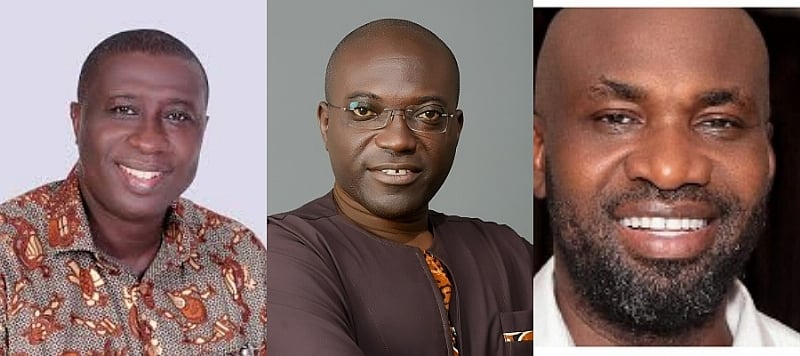The swearing-in of three newly elected Members of Parliament from the New Patriotic Party (NPP) has become a point of contention in Ghana’s political landscape. Justice Srem Sai, a member of the opposition National Democratic Congress (NDC) legal team, has raised serious concerns about the legality of the process leading to the declaration of these MPs-elect, arguing that it was tainted by procedural and legal irregularities. The three MPs-elect, Patrick Yaw Boamah for Okaikwei Central, Charles Forson for Tema Central, and Martin Adjei Mensah Korsah for Techiman South, were declared winners after a court-ordered re-collation of results. This re-collation, however, is at the heart of the dispute, with the NDC claiming it was carried out despite a pending appeal against the initial court order that mandated it. This raises questions about the validity of the election outcomes and the legitimacy of the subsequent swearing-in of these individuals.
The crux of the NDC’s argument centers on the timing and execution of the re-collation process. Justice Srem Sai contends that the Electoral Commission (EC) proceeded with the re-collation despite being served with a notice of an appeal and a stay of execution application against the High Court order. This action, according to the NDC legal team, constitutes a breach of the court’s orders and undermines the legal process. The NDC argues that any actions taken based on a process under judicial review are inherently flawed and should not be considered valid. Therefore, they maintain that swearing in the three NPP MPs-elect before the resolution of the legal dispute surrounding the re-collation would be unlawful and unconstitutional.
The NDC’s position is that the re-collation, having been conducted under a cloud of legal challenge, cannot serve as a valid basis for declaring the NPP candidates as winners. They assert that the EC’s decision to proceed with the re-collation despite the pending appeal demonstrates a disregard for due process and the rule of law. The party insists that the legal challenge must be fully addressed and a final determination made regarding the validity of the re-collation before any further actions, including the swearing-in of the MPs-elect, can be taken. This raises questions about the impartiality of the EC and its commitment to upholding the integrity of the electoral process.
The controversy surrounding the swearing-in of the three MPs highlights the fragility of democratic processes and the importance of adhering to legal procedures. The NDC’s challenge calls into question the legitimacy of the election results and the potential consequences of disregarding legal challenges. Allowing individuals to assume office based on a potentially flawed process could undermine public trust in the electoral system and create a precedent for future disregard of legal procedures. This situation underscores the need for clear and transparent legal frameworks governing elections and the importance of respecting judicial processes to ensure the integrity and credibility of democratic institutions.
The potential ramifications of this dispute extend beyond the immediate question of the three MPs-elect. It raises broader concerns about the respect for the rule of law and the potential for political maneuvering to circumvent established legal procedures. If the EC’s actions are deemed to have been unlawful, it could set a dangerous precedent for future elections and erode public confidence in the electoral process. This situation also highlights the need for robust mechanisms to ensure accountability and transparency within electoral bodies, to prevent any perception of bias or manipulation.
The ongoing legal battle surrounding the re-collation and the subsequent swearing-in of the three MPs-elect underscores the importance of a fair and impartial electoral process. The NDC’s challenge to the process highlights the potential consequences of neglecting legal procedures and the need for a thorough and transparent investigation into the matter. The resolution of this dispute will have significant implications for the future of Ghanaian politics and the integrity of its electoral system. A fair and impartial outcome is crucial to maintaining public trust in democratic institutions and ensuring the stability of the country’s political landscape.














